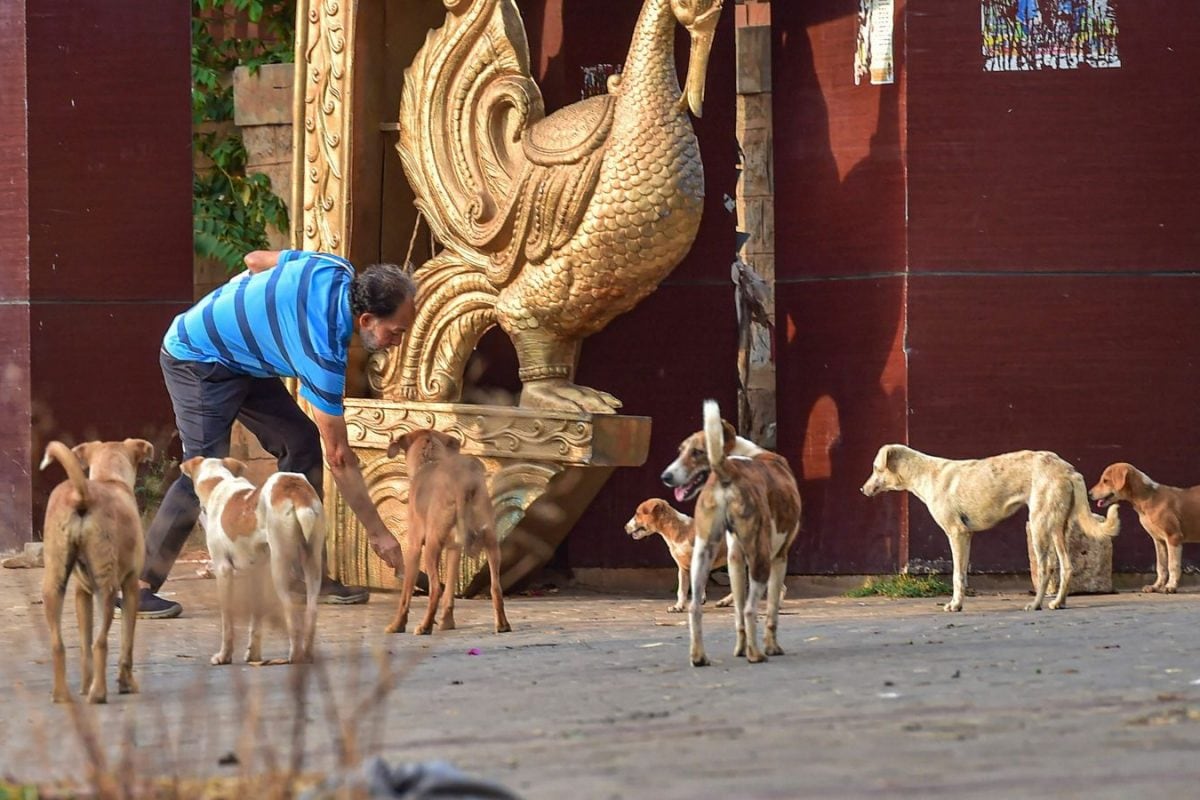

The Bruhat Bengaluru Mahanagara Palike (BBMP), Bengaluru's civic body, is facing a storm of controversy over its plan to feed stray dogs. Initially misreported as a "biryani" scheme, the BBMP clarified that the dogs would be served chicken and rice. The initiative, aimed at curbing dog aggression and improving public safety, has drawn mixed reactions, with some hailing it as a humane approach and others criticizing it as a waste of taxpayer money.
Under the scheme, the BBMP intends to provide 5,000 stray dogs with a 367-gram portion of chicken and rice daily, at a cost of ₹22 per meal. This amounts to an annual expenditure of ₹2.88 crore. The BBMP has invited Food Safety and Standards Authority of India (FSSAI)-registered food service providers to feed approximately 500 dogs each across the city's eight zones. The feeding drive is intended to address growing concerns about public safety, with Bengaluru reporting 18,822 dog bite cases between January and August 2024.
The announcement of the scheme has triggered widespread debate on social media and in political circles. Opposition leaders, particularly from the Bharatiya Janata Party (BJP), have strongly criticized the BBMP's plan. R. Ashoka, Leader of the Opposition, alleged that the scheme is a pretext for looting public funds. He questioned the timing and priority of the initiative, especially when the city is grappling with issues such as pothole-ridden roads, poorly maintained parks, and underfunded hospitals and schools. Another BJP leader criticized the government for attempting to turn "Brand Bengaluru" into "Biryani Bengaluru".
Critics argue that the feeding program is an extravagant use of taxpayer money, especially when the city struggles with inadequate basic infrastructure. They suggest that the BBMP should prioritize essential services for citizens before allocating funds to feed stray dogs. Concerns have also been raised about the potential public health issues that could arise from leftover food attracting rats and pests.
Conversely, some animal lovers and citizens have welcomed the BBMP's initiative, viewing it as a compassionate step towards animal welfare. They argue that providing food to stray dogs is a humane way to reduce their aggression and improve their overall well-being. Some individuals who already feed stray dogs out of their own pockets see the BBMP's support as a significant relief.
However, even among those who support animal welfare, concerns have been raised about the long-term consequences of the scheme. Critics like "The Skin Doctor," a popular social media commentator, have warned that regular feeding at fixed locations could make stray dogs dependent on handouts, reduce their scavenging instincts, and lead to increased visibility and concentration of dogs in populated areas. This could potentially exacerbate the stray dog menace and create further public nuisance.
To mitigate the stray dog crisis, experts emphasize the importance of consistent sterilization and vaccination drives, along with responsible waste management. Congress MP Karti Chidambaram, a vocal critic of stray dog management policies, has suggested relocating stray dogs to shelters where they can be properly cared for, vaccinated, and sterilized. He argues that feeding and keeping them in a free-roaming state poses a significant health and safety hazard.
The BBMP has also launched a pilot project to implant microchips in stray dogs to monitor their territory, sterilization, vaccination status, and health. This initiative aims to improve the management and tracking of stray dogs in the city. The civic body maintains that the feeding program will focus on areas with high dog bite cases and low volunteer activity, targeting only a small percentage of the city's stray dog population. The BBMP Special Commissioner, Vikas Kishor, has emphasized that the initiative is a shared responsibility and encourages citizens to contribute financially or as volunteers.